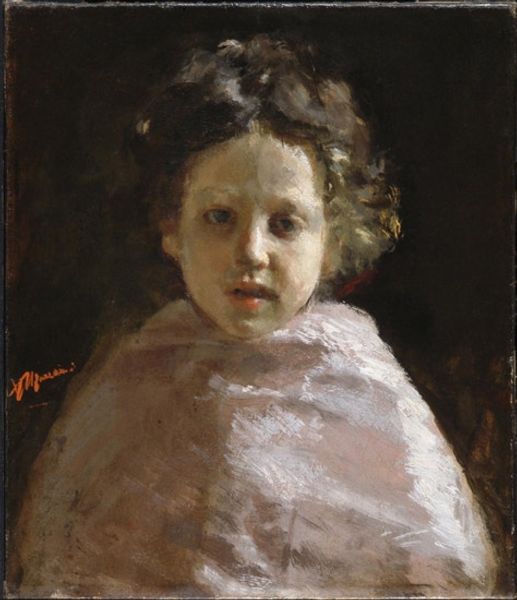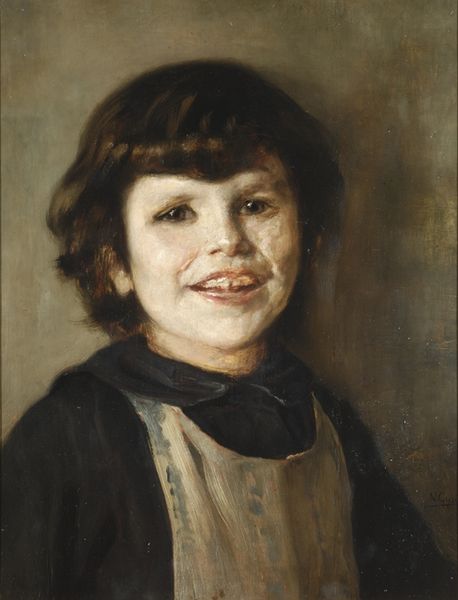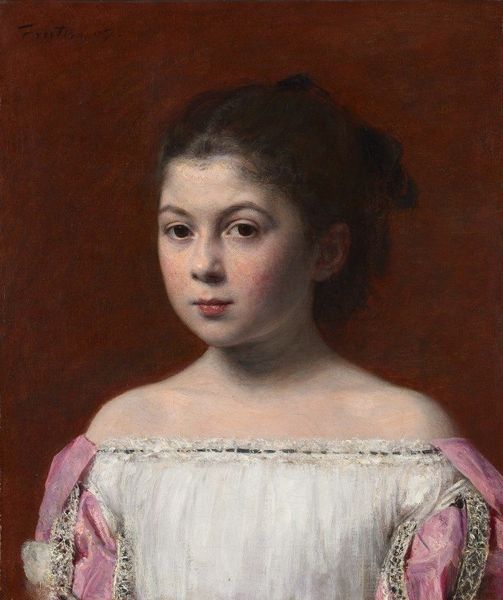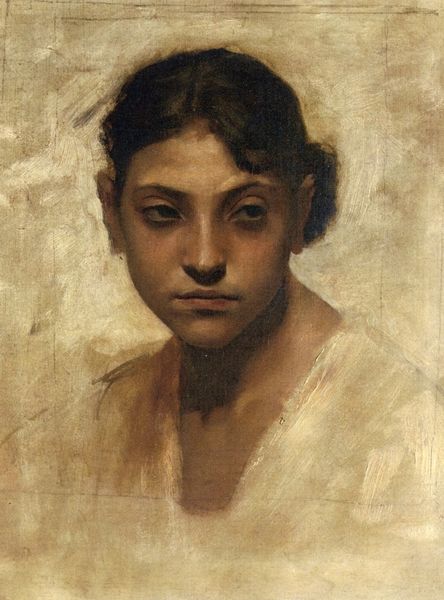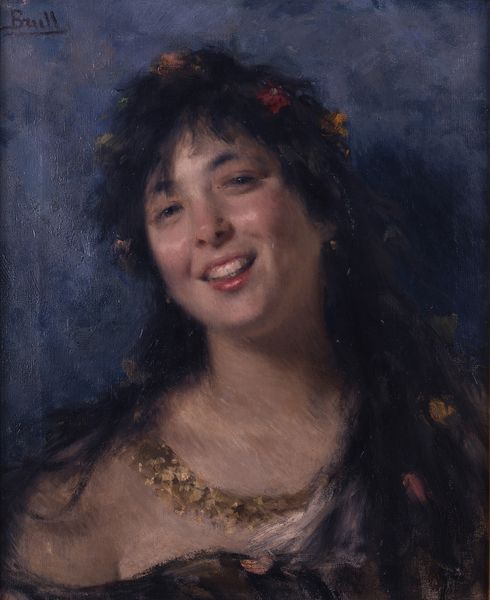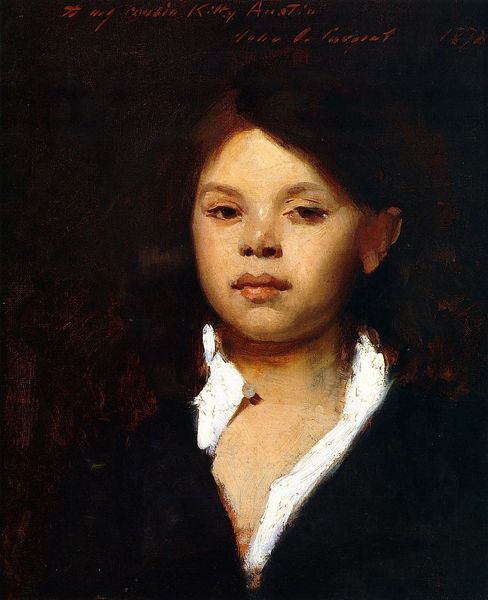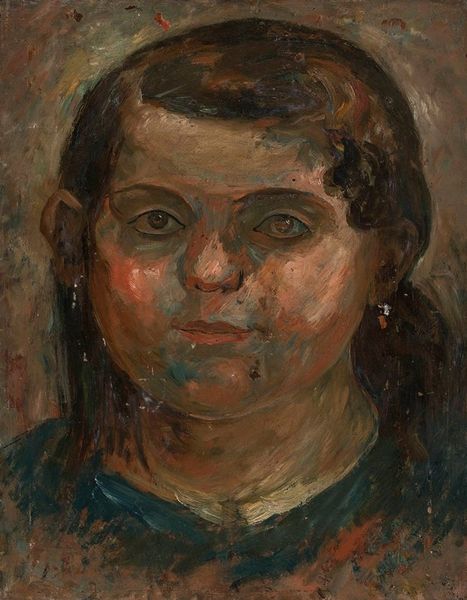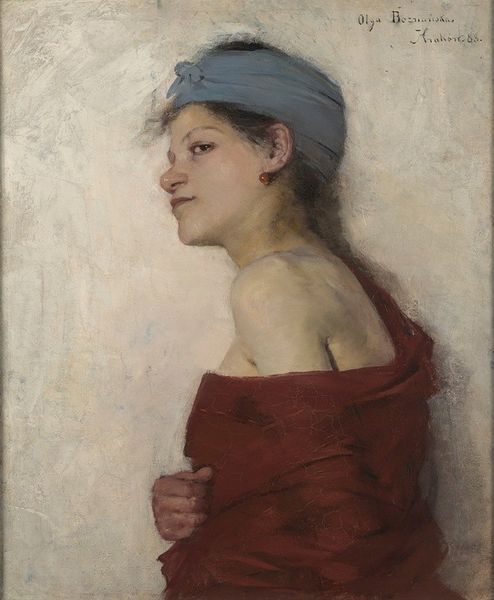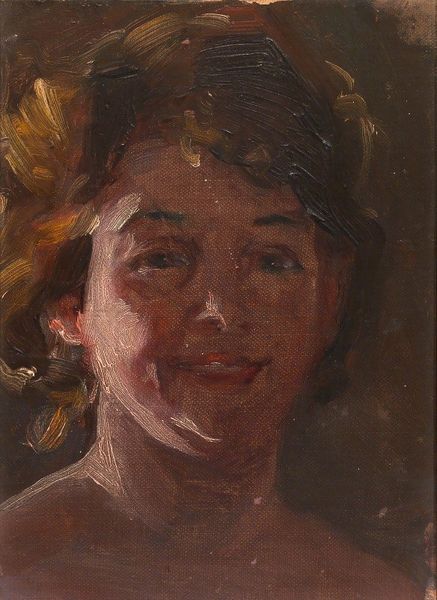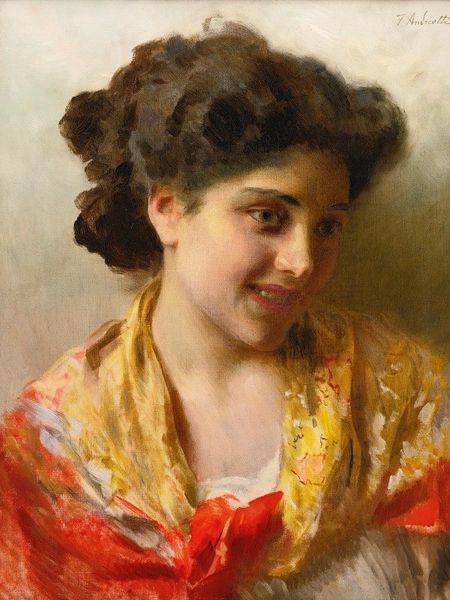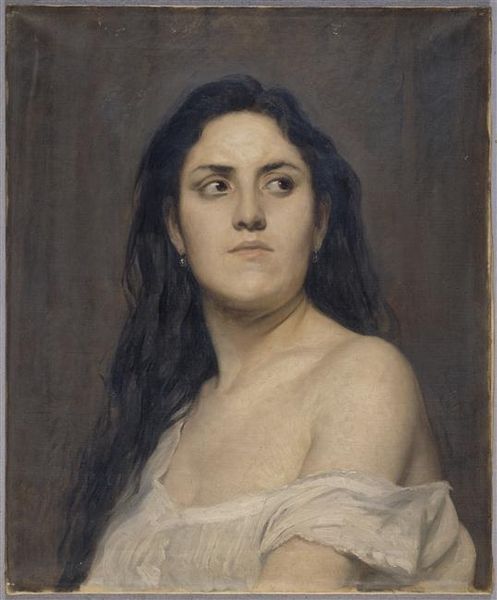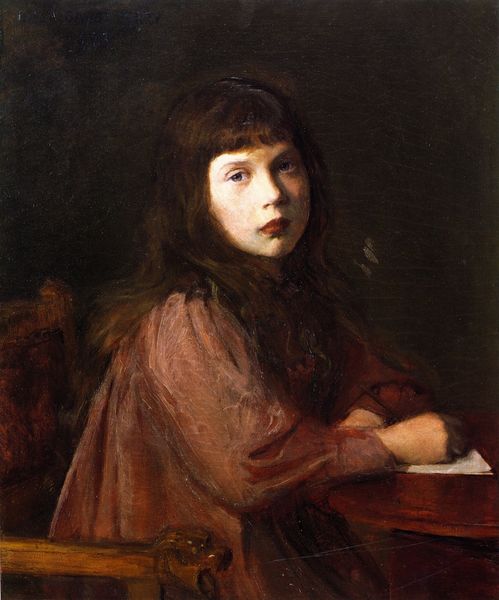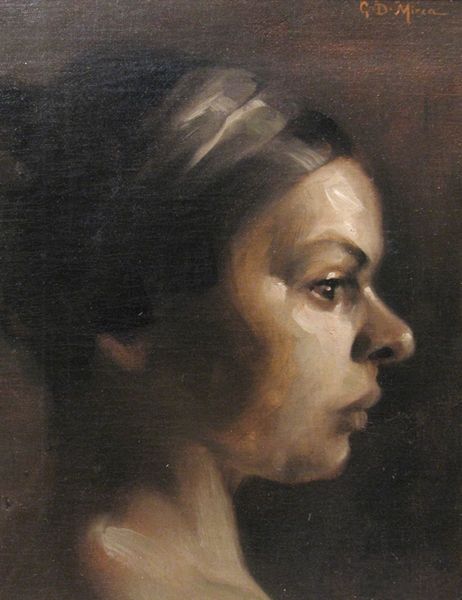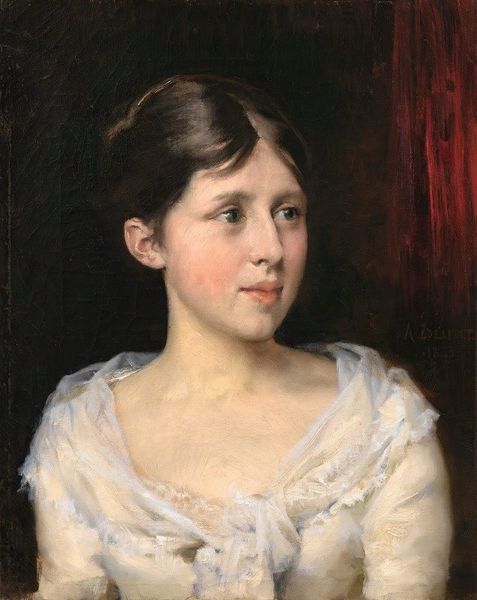
Copyright: Public Domain: Artvee
Curator: Editor: So, here we have Lovis Corinth's "Laughing Girl" from 1883. It's an oil painting, and the subject's joyous expression is striking. I'm curious about your interpretation – what do you see beyond the obvious happiness in this piece? Curator: Beyond the surface, I see a representation of labor. Consider the process: oil paint meticulously layered on canvas. How do the materials themselves, the pigment, the canvas, speak to the social conditions of artistic production at the time? What was the economic landscape that enabled Corinth to create this? Editor: That's a perspective I hadn't fully considered. The brushstrokes seem almost hurried in places, though. Does that tell us anything about the labor involved? Curator: Absolutely! That hurried application might reflect constraints - perhaps Corinth was working quickly due to economic pressures, or perhaps the "impressionistic" look of the painting reflected the popular demands of the time. Is it efficient craftsmanship, or artful impressionism? Editor: It's interesting how looking at the materiality changes how I view the aesthetic. Are we meant to think of the sitter's work, as well? Or, is she a person of leisure, presented with this lavish gown, which you have described as labour? Curator: A fantastic question. How is she positioned in the economic equation of 19th century Europe? If she were working-class, then that simple material reality alters our reception of the work in that the garment becomes a tool of propaganda, for the haute bourgeoisie. Is Corinth reflecting a new, democratic kind of art, or simply pandering to popular portraits of women? Editor: I've always appreciated portraiture, but examining the layers of production adds a new dimension to understanding the art. Curator: Precisely. By grounding ourselves in the material and social contexts, we unravel deeper meanings in the seemingly simple depiction of a laughing girl. We come to a clearer understanding of art's meaning, by studying its mode of production.
Comments
No comments
Be the first to comment and join the conversation on the ultimate creative platform.
